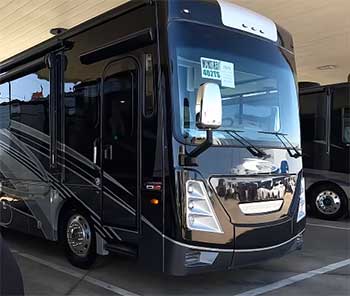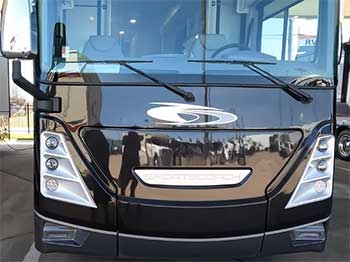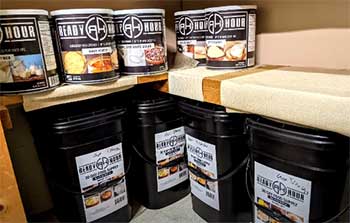If you’re considering purchasing a used Coachmen Sportscoach RV, you may be wondering about some of the common problems these motorhomes tend to develop over time. Coachmen has produced Sportscoach Class A, Class B, and Class C RVs since the 1990s, and many RV owners have reported frustrating recurring issues with these models.
In this comprehensive guide, we’ll provide an in-depth look at the most prevalent Coachmen Sportscoach problems, offer tips for diagnosing issues, and suggest potential solutions to get your RV back on the road.
We’ll also answer some frequently asked questions about Coachmen quality, manufacturing, and more. Read on to learn what to watch out for if you own or are considering purchasing one of these popular motorhomes.
Problems With Common Coachmen Sportscoach
Here is a list of these issues:
- Chassis and Suspension
- Electrical System Problems
- Slide Out Leaks
- Roof Problems
- Furnace Issues
- Additional Problem Areas
Let’s talk about them in detail.
Chassis and Suspension

Coachmen Sportscoaches are built on Ford, Freightliner, or Spartan chassis.
Like any vehicle, the chassis is subjected to a great deal of stress from supporting and propelling the weight of the RV.
Here are some of the most reported chassis and suspension problems with Sportscoach models:
- Sagging springs: Over time, the leaf springs that support the rear axle can begin to wear out and sag. This causes the rear end to ride lower. Replacing the entire spring assembly is the best fix.
- Shocks wearing out: Shocks help provide a smooth ride, but they can leak and lose their effectiveness over time. Worn out shocks lead to a bouncy ride. Plan to replace shocks every 50,000-75,000 miles.
- Ball joints wearing: The ball joints that connect the wheels to the axles can wear down, causing steering issues like wandering, loose feeling steering, and vibrations. Ball joints need to be inspected and replaced as necessary.
- Engine mounts cracking: The rubber engine mounts can crack and deteriorate, leading to excessive engine movement. Replacing mounts restores smooth running.
- Chassis rust: Sportscoaches built before 2000 often have rust problems around the chassis. This can lead to corrosion and frame cracks over time. Addressing rust early helps prevent bigger issues.
Also Read: Problems With Dutchmen Astoria RV.
Electrical System Problems
With their furnaces, lighting, and appliances, RVs rely heavily on electrical systems. Here are some typical electrical issues with Coachmen models:
- Shorts and blown fuses: Faulty wiring and electrical components can cause shorts, leading to blown fuses. Track down the source of shorts to prevent repeat fuse blowing.
- Battery drain: Parasitic drains from lights or accessories left on can drain the battery. Test for drains with an ammeter, and disconnect if necessary.
- Converter problems: The converter powers 12-volt systems when shore power is connected. Converters can overheat or fail over time. Replace failed converters promptly.
- Solar panel issues: Installed solar panels often develop problems like cracked cells, corrosion, and failing controllers. Inspect panels and controllers regularly for issues.
- Circuit board failures: Many Sportscoach functions rely on circuit boards that can fail over time. Diagnose and replace any malfunctioning boards.
Slide Out Leaks
Slide out rooms are a popular feature on Sportscoaches, but the seals around them are prone to leaking. Sources of leaks include:
- Seal drying and cracking: Slide out seals become less flexible over time. Look for cracks or gaps that let in water. Replace worn seals.
- Separation from sidewalls: Gaps between the slide out and RV body allow water intrusion. Recaulk separations to prevent this.
- Drain holes clogging: Slide outs have drain holes that can clog with debris. Clean them regularly to ensure proper drainage.
- Hydraulic drive leaks: Hydraulic slide out systems can leak, causing the room to not function. Check cylinders and hoses for leaks.
Roof Problems
RV roofs take a lot of abuse from the elements. Coachmen Sportscoach roofs suffer from these common failures:
- Seam and membrane leaks: The roof’s EPDM rubber membrane can crack and peel away at the seams leading to leaks. Have seals redone and apply sealants at seams.
- Roof cracks: Fiberglass roofs can crack from flexing during driving or impact damage. Inspect for cracks and use epoxy adhesives for repairs.
- Roof delamination: Moisture invading the roof layers leads to delamination between the fiberglass, wood, and insulation. Prevent with resealing and early water damage repairs.
- Air conditioner leaks: Loose or cracked seals around A/C units allow water into the roof. Apply sealant around units and inspect gaskets.
Furnace Issues
Coachmen installs Suburban or Atwood LP gas furnaces. Some problems Sportscoach owners report with these furnaces include:
- Dirty burners and orifices: Burners that don’t ignite properly or burn yellow indicate clogs. Clean burners and orifices thoroughly.
- Cracked heat exchangers: Excessive heat causes the furnace’s heat exchanger core to crack over time. Replace malfunctioning heat exchangers.
- Failed sail switches: The sail switch shuts off the furnace if airflow is blocked. Replace switches that fail to work properly.
- Gas valve problems: Furnace gas valves can stick or fail to open fully. Replace faulty valves for proper furnace operation.
- Blown thermal fuses: A blown thermal fuse indicates overheating and shuts down the furnace. Determine the overheating cause before replacing fuses.
Also Read: Problems With Dutchmen Kodiak RV.
Additional Problem Areas
Other common problem spots in Coachmen RVs include:
- Water damage in cabinets, floors, walls, and ceilings from any roof, window, plumbing, slide out, or appliance leaks
- Generator failures from lack of maintenance and use
- Cracked holding tanks from freeze damage or age
- Broken leveling jacks from dry, seized motors and gears
- Plumbing leaks and clogs from aging pipes, fittings, pumps, and valves
Diagnosing Coachmen Sportscoach Problems
Diagnosing RV problems accurately is crucial for proper repairs. Here are some tips for assessing Sportscoach issues:

- Note all symptoms – Document all malfunctions fully. List symptoms like leaks, unusual noises, electrical faults, etc.
- Look for water damage – Inspect ceilings, walls, floors for stains indicating roof, slide, or plumbing leaks.
- Check error codes – Electrical faults often store codes that help identify the source. Check control panel codes.
- Assess performance changes – Consider if problems started suddenly or gradually, which can indicate failing components.
- Consider age and mileage – Problems like chassis wear are typical at certain ages and mileages. Track both to help diagnose.
- Keep maintenance records – Past maintenance documentation helps determine if repairs were done right.
- Follow maintenance schedules – Review maintenance manuals to ensure services weren’t overlooked.
- Inspect roof and seals thoroughly – A leading source of RV damage is roof leaks. Check for any gaps, cracks, and separation around vents and seams.
- Use multimeters to check circuits – Electrical shorts can be located by testing voltage differences between circuits.
- Assess hydraulic slide out leaks – Hydraulic leaks often leave oily residue near cylinders and hoses.
Thorough inspections and specific testing helps pinpoint Sportscoach issue sources for proper diagnosis. Seek help from an experienced RV technician for complex problems.
Fixing Common Coachmen Sportscoach Problems
Many Coachmen problems can be resolved with the right repairs and maintenance. Here are some tips for fixing typical Sportscoach issues:
- Seal roof penetrations – Use self-leveling lap sealant around vents, air conditioners, and seams to stop leaks. Check seals annually.
- Replace shocks and ball joints – Install heavy duty shocks and OEM ball joints to restore ride and handling.
- Update chassis components – Suspension springs, bushings, engine mounts, etc. wear out over time. Replace with durable parts.
- Fix slide out leaks– Reseal slide perimeter, lubricate slides, and ensure drainage holes are clear to prevent water entry.
- Update electrical– Replace suspect circuit boards, solenoids, fuses, and connectors. Check all wiring for cracking or damage.
- Clean and adjust furnace– Clean burners and orifices thoroughly and adjust gas valve pressure for efficient firing.
- Practice preventive maintenance– Follow manufacturer maintenance schedules for all systems to prevent premature failures.
- Address water damage promptly– Dry affected areas thoroughly and repair damage to prevent mold and future issues.
With quality replacement parts, sealants, cleaning, and adjustments, many Coachmen RV problems can be successfully resolved. Seeking help from experienced mobile RV technicians can be wise for more complex issues.
Also Read: Comparison of Thor Vegas And Axis RV.
FAQ About Coachmen RVs
Coachmen RVs are generally decent quality. They offer lots of amenities and floorplan options at reasonable prices. However, Coachmen tends to have more quality control issues compared to other brands. Their products may require more maintenance and repairs.
The Sportscoach brand of Class A, Class B, and Class C motorhomes is manufactured by Coachmen RV, which is owned by Forest River Inc. Coachmen has produced Sportscoach models since the 1990s.
Yes, Coachmen is a subsidiary brand of Forest River, which is one of the largest RV manufacturers. Forest River purchased Coachmen in 2008 but kept Coachmen as a separate division with its own manufacturing facilities and model lineup. Many RV owners view Coachmen as a more budget-friendly brand versus Forest River.
Key Takeaways About Coachmen Sportscoaches
- Coachmen Sportscoach RVs are prone to common problems like chassis wear, electrical shorts, roof leaks, slide out leaks, and furnace failures.
- Thoroughly inspecting and testing systems is crucial to properly diagnosing Sportscoach problems.
- Issues like worn shocks, slide seals, and electrical components often require replacement with quality parts.
- Practicing scheduled maintenance and prompt repairs is key to extending the life of Sportscoach RVs and preventing severe damage.
- Coachmen motorhomes require more upkeep compared to leading brands, but proper care can help maximize longevity and enjoyment.
Final Thoughts
Considering everything we’ve covered, prospective Sportscoach buyers should be prepared to tackle some repairs and extra maintenance, especially on used models.
But with the right mechanical skills and preventive care, Coachmen RVs can still offer years of comfortable travel.


